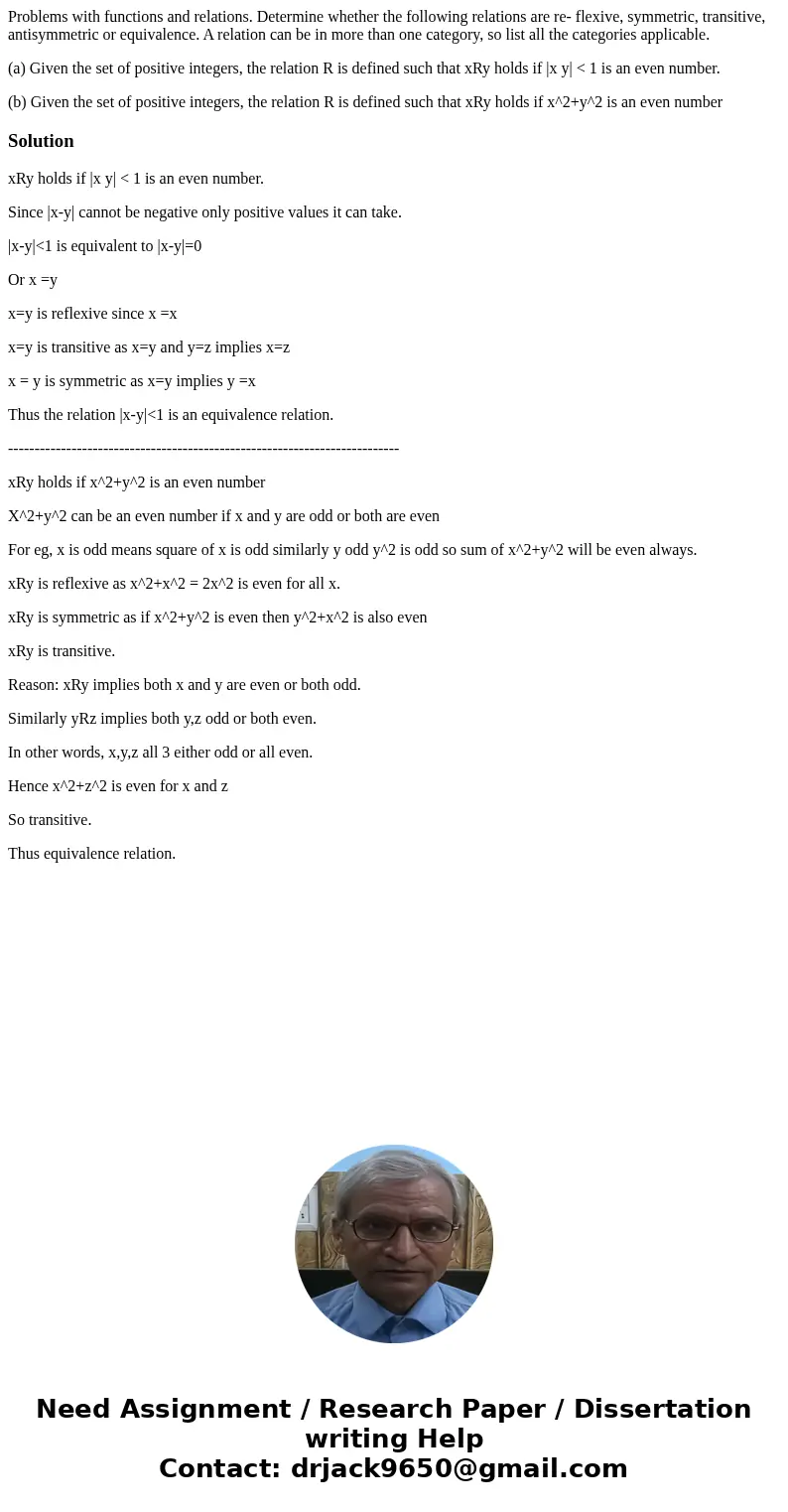Problems with functions and relations Determine whether the
Problems with functions and relations. Determine whether the following relations are re- flexive, symmetric, transitive, antisymmetric or equivalence. A relation can be in more than one category, so list all the categories applicable.
(a) Given the set of positive integers, the relation R is defined such that xRy holds if |x y| < 1 is an even number.
(b) Given the set of positive integers, the relation R is defined such that xRy holds if x^2+y^2 is an even number
Solution
xRy holds if |x y| < 1 is an even number.
Since |x-y| cannot be negative only positive values it can take.
|x-y|<1 is equivalent to |x-y|=0
Or x =y
x=y is reflexive since x =x
x=y is transitive as x=y and y=z implies x=z
x = y is symmetric as x=y implies y =x
Thus the relation |x-y|<1 is an equivalence relation.
--------------------------------------------------------------------------
xRy holds if x^2+y^2 is an even number
X^2+y^2 can be an even number if x and y are odd or both are even
For eg, x is odd means square of x is odd similarly y odd y^2 is odd so sum of x^2+y^2 will be even always.
xRy is reflexive as x^2+x^2 = 2x^2 is even for all x.
xRy is symmetric as if x^2+y^2 is even then y^2+x^2 is also even
xRy is transitive.
Reason: xRy implies both x and y are even or both odd.
Similarly yRz implies both y,z odd or both even.
In other words, x,y,z all 3 either odd or all even.
Hence x^2+z^2 is even for x and z
So transitive.
Thus equivalence relation.

 Homework Sourse
Homework Sourse